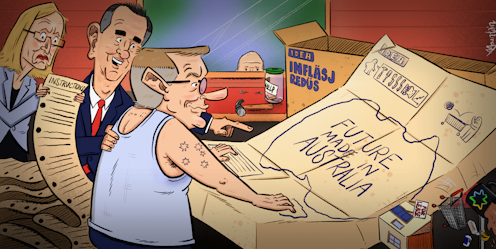
Air conditioning is essential in Australia, especially during the scorching summer months, when homes and workplaces can become unbearable without rel...

Introduction
In Brisbane’s hot and humid climate, air conditioning has become more of a necessity than a luxury. Whether it's keeping your home coo...

Creating the perfect balance between indoor comfort and outdoor living is something many homeowners aspire to achieve. In recent years, Lifestyle Aw...

The right bucket can streamline transport and make handling easier day to day. With options suited to food, chemicals and construction materials, th...

While air conditioning is common, it is not always the most cost-effective or sustainable solution, particularly during long hot summers. For homeow...

Air conditioning has become a fundamental part of homes and businesses, providing relief from sweltering summers and keeping interiors warm in winte...

From everyday waste to bulky items like furniture and appliances, finding the right way to dispose of rubbish is not always straightforward. This is...

In the digital age, we're constantly told that first impressions matter, and nowhere does this seem more apparent than in web design. However, a cur...

Many Australians hear the term "TPD" in relation to their superannuation and feel completely lost. If you're scratching your head, wondering what it...

Frequently, numerous new mothers wonder, "What does breastfeeding feel like?" The feeling is different for each individual - a few describe it as a ...

For many people, nail polish is more than a beauty statement – it’s part of their everyday routine. Whether you love bold colours, chic neutrals...

A New Chapter for Learning
For centuries libraries stood as temples of knowledge filled with shelves that smelled of dust and paper. Today the same...

Recent research has revealed that in 2022, 1 in 9 Australians experienced post-traumatic stress disorder (PTSD). For some, this can significantly im...

Australia’s sun-soaked lifestyle is a defining part of its national identity. From beaches and sports fields to weekend barbecues and bushwalks, t...

In today's data-driven world, businesses are constantly searching for ways to gain a competitive edge. One tool that has emerged as a game-changer i...

Life after military service can bring new challenges. From physical limitations to mental health hurdles, many Australian veterans find everyday hou...

If you're shopping for caravans for sale, timing matters almost as much as the layout and features you desire. The calendar shapes price, stock and ...

Technology has reshaped how we communicate, work, and travel—but now, it’s also changing the way we live at home. The rise of home automation i...




















